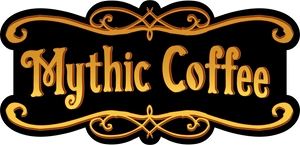At Seattle’s Museum of Pop Culture (MoPOP), the museum shop and cafe aren’t an afterthought. It’s another way guests experience the stories the museum was built to tell. Through food and retail, MoPOP gives guests another way to connect with culture by sourcing from local makers, celebrating regional flavor, and turning shelf space into a platform for small businesses to be discovered by both locals and visitors.
In partnership with SSA, MoPOP features a rotating mix of products from diverse and minority-owned businesses across the Pacific Northwest. From fermented krauts to small-batch coffee to hand-rolled lumpia, each vendor adds something different to the museum experience.
Here’s a closer look at three of those vendors. Their stories show how thoughtful sourcing can turn a bland shopping experience into something meaningful and why these makers are essential to the communities we serve.
Inside Firefly Kitchens
Julie O’Brien, Founder
Firefly Kitchens began with an “a-ha moment.” While studying holistic nutrition, founder Julie O’Brien came across a small section in a book about fermentation.“Here I was, a total health nut, and I had never heard that sauerkraut—real, raw kraut—could be so powerful,” she said.
That small spark led to what is now more than 15 years of work making traditionally fermented foods more approachable and accessible. Julie and her team have grown Firefly organically, without outside funding, building a loyal following through education and flavor. Their krauts and kimchis are now recommended by nutritionists and used by chefs throughout the Pacific Northwest.
Through its partnership with SSA, Firefly Kitchens found a natural home at MoPOP. “It wasn’t just about getting our product on the shelves,” Julie said. “It was about working with someone who actually believed in it and wanted to tell the story.” MoPOP features Firefly products both in retail and on the menu, creating multiple ways for guests to engage with local food culture.
Julie sees this kind of visibility as vital for small makers. “When a venue like MoPOP creates space for businesses like ours, it helps normalize health-focused, locally-made food. It invites people to be curious, to taste something new, and to feel good about where it came from. It also enables us to be able to pay it forward—through our partnerships with 1% for the Planet, local food banks, and community nourishment initiatives beyond.”
Learn more about Firefly Kitchens here.
Meet Mythic Coffee
Jason Sawicki, Founder
Mythic Coffee is one of Seattle’s most original roasters, blending serious coffee expertise with a sense of play. Founder Jason Sawicki, who spent nearly two decades in the industry, including 16 years at Starbucks, now runs the brand as a nonprofit alongside his wife.
“We created these characters—like Sass Squatch and Spart Farkles—because we wanted to infuse humor and identity into the brand,” he said. “It should be fun. Coffee’s part of people’s rituals. We want to make it memorable.”
MoPOP Executive Chef Athan Pixler connected with Jason after he discovered Mythic on a Seattle food blog. “He reached out, we did a tasting, and they’ve been serving our coffee ever since,” Jason explained. “It’s been great exposure. We rely on word of mouth, and have had people order from across the country because they tried us at MoPOP.”
Running a nonprofit model allows Jason to keep prices accessible and donate 20 percent of net proceeds to rotating local charities. “It’s a tough market. Coffee prices are at an all-time high, having more than doubled over the past year. But we’re committed to quality and mission always.”
Learn more about Mythic Coffee here.
Behind Loumpia
Lou Gavino, Founder
Lou Gavino didn’t take a traditional path into food. A former biotech chemist and commercial sales executive, he was burned out and ready for something new. That search led him back to the food of his childhood—specifically, the hand-cut, labor-intensive lumpia his family made in the Philippines.
“I was tired of not seeing the kind of lumpia I grew up eating,” Lou said. “I knew it could be done. It just needed a different approach.” He used his scientific background to test the market, refine his process, and make the numbers work.
Loumpia officially launched in May 2024 and quickly grew through local farmers' markets. During a visit to MoPOP, Lou asked if they partnered with small vendors. A quick conversation led to a tasting, and soon after, Loumpia was featured in a chef spotlight at the museum. The visibility made an immediate impact. “After our chef spotlight, someone from Amazon invited me to Vendor Day,” Lou said. “That led to catering work and other new connections.”
Giving back has always been part of Lou’s plan. Five percent of sales support Utang Na Loob, a nonprofit he founded to provide medicine to underserved communities in his family’s hometown in the Philippines. “It’s a way to honor the people who helped get us here,” he said.
Lou’s scientific approach still guides the business, whether he’s adjusting pricing or testing new ideas, like a gluten-free lumpia wrapper. His process is simple: test, revise, and keep making it better. Science.
Learn more about Loumpia here.
Storytelling beyond the shelf
Firefly, Mythic, and Loumpia aren’t just selling products. They’ve each found a way to make something personal and put it in front of guests who might not have found it otherwise. Their presence at MoPOP shows how small, local businesses can add another layer to places that are already doing something special. It’s also proof that a museum shop and cafe can be more than a place to sell things. It can be the final, intentional part of a guest’s visit.



